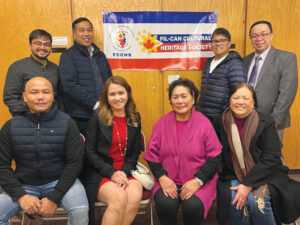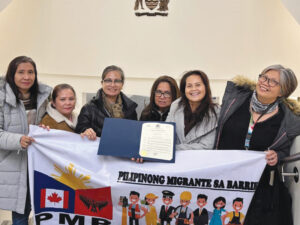| The NotaryImmigration Corner
604-777-2757 / corrales@shaw.ca |
You will need to have the education, work experience or professional credentials you received outside Canada assessed if you are:
- immigrating to Canada as a Federal Skilled Worker
- coming to Canada to work in specific professions or trades, or
- coming to Canada to study,
Credential assessment will help you:
- see whether your credentials are equal to the standards set for Canadian workers
- find out whether you need more training, education or Canadian work experience
- understand the types of jobs for which you might be qualified
- help employers understand your qualifications
You can start the credential assessment and recognition process before you arrive in Canada. This takes time and costs money.
1. To immigrate as a Federal Skilled Worker (FSW)
To apply to the Federal Skilled Worker Program (FSWP), you must get an Educational Credential Assessment (ECA) of your completed foreign educational credentials.
An ECA is used to verify whether your:
- foreign degree,
- diploma,
- certificate, or
- other proof of your credential.
is valid and equal to a completed credential in Canada for the purpose of immigrating to Canada.
Remember that you will also have to have your skills and training assessed to work in particular jobs in Canada.
2. To work in some jobs in Canada, including certain trades
Reminder: No matter which type of job you are looking for, make sure you have the language skills needed. Even if you have the language skills needed to immigrate to Canada, those skills may not be strong enough to work in your preferred profession.
There are two types of occupations in Canada: regulated (including trades) and non-regulated.
Regulated occupations, including trades
A regulated occupation (for example, architect, engineer or plumber) is controlled by provincial and territorial (and sometimes federal) law and governed by a regulatory body or apprenticeship authority. They are also called professions, skilled trades or apprenticeable trades. These jobs are regulated to protect public health and safety, and to make sure that people working in those jobs are qualified. About 20 percent of jobs in Canada are regulated.
A regulatory body usually assesses credential recognition. Check with the regulatory body or other organization for your occupation to find out whether you need an assessment. They can tell you which credential assessment agency you should use. You can find contact information for your regulatory body on Job Bank. You can also check their website to find information about:
- licensing,
- eligibility,
- the recognition process, and
- fees.
To work in a regulated occupation and use a regulated title, you must:
- have a licence or
- a certificate or
- be registered with the regulatory body for your occupation in the province or territory where you want to work.
Each regulated occupation has its own requirements for getting a licence or certificate. Requirements can be different between provinces and territories. Requirements for entry usually include:
- An assessment of your training and skills against the profession’s standards by comparing your original academic transcripts and other related documents, such as university course descriptions, with the training provided by Canadian colleges and universities
- Written examinations, an interview or both
- An evaluation of your language and communication skills
- A specified period of supervised work experience
You will be evaluated as an individual. Do not compare your experience directly with that of someone else. You must understand the requirements as they apply to your own situation in the province or territory where you intend to work.
If you want to work in a trade (carpenter, electrician, bakers), visit Red Seal for more details about the training, skills and experience you will need to meet. As a tradesperson, you may be eligible to immigrate through the Federal Skilled Trades Program.
In Canada, some provinces and territories regulate certain professions and trades while others do not. If you have a licence to work in one province or territory, it may not be accepted in others.
Non-regulated occupations
Some employers require that job applicants be registered or certified by the relevant professional association. Credential assessment and recognition helps Canadian employers understand your qualifications.
Job requirements can vary greatly between employers. Be prepared to prove that you have the education or experience to do the job. You may have to:
- demonstrate a certain level of skill and competence,
- have a specific amount of education, and
- have personal characteristics suitable for the job.
A credential assessment agency can assess your educational credentials for a fee. You may include this information in your résumé or curriculum vitæ (CV).
3. To study
If you plan to study in Canada, you will need to have your educational credentials assessed. Some post-secondary schools can do the assessment. In other cases you will need to go to an assessment agency. Contact the post-secondary school you want to attend in Canada to find out what kind of assessment they require and accept. Then, contact the assessment agency recommended by the school you want to attend, if required.
Assessment agencies can compare your academic credentials with similar ones in Canada’s post-secondary educational system. Assessments done by assessment agencies help employers, post-secondary institutions, and professional bodies understand your academic background. They do not guarantee recognition of your qualifications for employment or certification/licensing purposes in Canada or further study in a Canadian post secondary institution. These agencies charge a fee for their services.
Note: Having your educational credentials recognized to immigrate to Canada as a Federal Skilled Worker, to qualify to work in a particular occupation (including getting a license), and to find a job are each separate processes.
Be aware that the words credentials, competencies and qualifications may often appear to have the same meaning, but in Canada have specific definitions.
** Strictly taken from www.cic.gc.ca
A Canadian Certified Immigration Consultant, Certified Senior Advisor and a Notary Public in the City of Burnaby, Editha Corrales Nelson’s preferred areas of practice are Powers of Attorney, Wills Preparation, International Legal Documents, Name Changes, Affidavits, Letters of Invitation, Statutory Declarations, Drafting of Business Contracts and other notarial services. For an appointment, please call: 604-777-2757.
The following should not be construed as providing legal advice and information in this column is intended only as a general guide and should not be applied to specific circumstances without further consultation. For more information on the subject, contact Editha Corrales Nelson at 604-777-2757 or email: corrales@shaw.ca.








